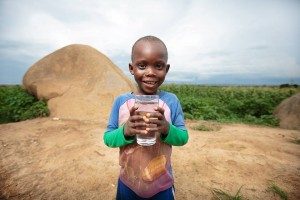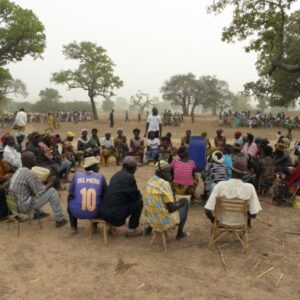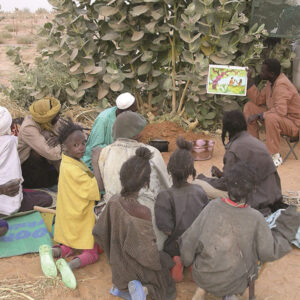International (MNN) — How come it’s so hard to talk about Jesus with strangers? Well, the truth is, unless we’re relating on a deeper level, there’s no way to convey the deep transformational power of the Gospel in an impactful way.

Living Water International is able to share hygiene information with orality. (Image courtesy of Living Water International)
Jerry Wiles, a consultant for Living Water International, says sharing stories is an effective way to relate. In addition, it is an avenue to sharing the Gospel.
Stories are just a tiny aspect of orality, the method of sharing the Gospel by word-of-mouth rather than writing.
The concept has been an effective one for Living Water on the field. By sharing content in a way that is easily repeated, they are able to teach entire communities hygiene practices that save lives. In the same way and at the same time, they’re able to share Bible stories. When God’s Word is made accessible to oral learners, they can hear and understand, and share it with others in their life.
But this isn’t just for international missions and oral cultures. Wiles says it can be effective anywhere on the planet. As we’ve shared before, the majority of the world learns best orally either by preference or necessity. That’s why orality workshops are helpful for anyone.
From mission field to your neighborhood
There are obvious reasons why being able to share Bible stories by memory is helpful on the mission field. In some areas, Bibles and related materials are illegal to bring into the country.
“You don’t have to smuggle Bibles or take equipment in. You just train people with what’s in their heads and in their hearts that can be reproduced in the heads and hearts of others,” Wiles explains.
But what about that moment where you’re sharing in conversation on the bus, or chatting with a cashier at the local grocery store? You realize they don’t know Jesus, but you don’t have your Bible and, anyway, you’re not sure how to start that conversation.
 It begins with a question.
It begins with a question.
“What we found in our training and on this journey is if you equip people with an orality based approach, you engage people, ask questions, you tell stories, tell your story, there is a relational story-telling approach we start by asking a question.”
A simple question is a way to show genuine interest and open opportunity. Ask them about a defining moment in their life, or about their spiritual journey or beliefs. And they might just ask you about yours.
“When you ask questions and listen, sometimes people will say, ‘Well, tell me your story.’ So you start with their story, then you share your story, then you bring God’s story into the conversation. And we’ve seen this work enough places and it just gives people a lot of liberty and confidence.”
With training, an individual can be more attentive and prepared to share a Bible story that relates to the conversation. You learn how to segue into the Gospel naturally.
“You might say something like, ‘Well I just learned a new story. Would you be interested in hearing a story I just learned?’ You tell a story, about Jesus. There are many stories. And then you think, Jesus calming the storm — you think, we all face storms of life — difficulties, problems, crisis situations. Who do we go to in those times of difficulty? Does Jesus care about us?”
You can see how it goes into a discussion about the hope found in Jesus. But, there’s quite a bit of learning that goes along with orality, perhaps more than you’d think. As Wiles says, it “requires a little bit of rethinking and sometimes unlearning and relearning certain things to get back to, because our modern Western literacy-based academic training doesn’t prepare us for that cross-cultural, global context.”
One of the best ways to learn more about orality is to attend a training workshop. Wiles says in the first session of a workshop, attendees are required to put away all computers, phones, and note-taking.
“We want them to enter the world of the oral learner, much like how the Gospel would have been presented and how it spread throughout the whole populated world in the first century before we had radio and TV and the printing press and all the things we have today.”
« Orality Breakouts – Chapter 17 – The...Orality Breakouts – Chapter 16 – Sto...»










